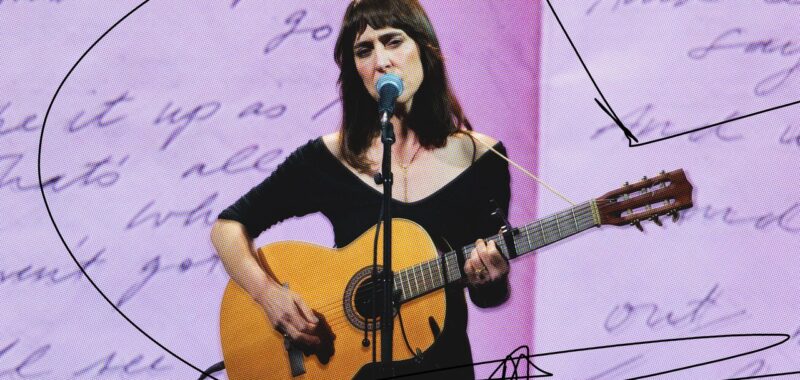Right now pop music at every level belongs to the girls. Taylor Swift continues to sell out stadiums, Charli XCX is collaborating with Billie Eilish, Lorde, and Robyn (and partying with Rosalía and Nelly Furtado), and Sabrina Carpenter is dominating the charts. But we have tragically overlooked one pioneering female artist, and it is time for that to change.
Feist got her start in high school in Calgary as the leader of a punk band called Placebo before moving to Toronto and linking up with Peaches. Her breakthrough came in 2001 with Let It Die, recorded in Paris, an album that expertly combined pop, jazz, disco, and R&B. She had a unique charm and somehow made being a little bit whimsical seem cool and not twee. Lyrically, she oscillated between optimism and cynicism, just like many of us in real life. “Mushaboom” is a classic. The Ron Sexsmith cover rounded it all out nicely.
You probably know this next bit: her third album, The Reminder, was released in 2007 and featured the hit “1234,” which became ubiquitous due to its use in an iPod Nano commercial. It hit number 8 on the US charts, and the song took over. In a time before streaming and algorithms, it was inescapable; the rest of the album is fantastic, too, but the song overshadowed it. After that, things changed. Feist did SNL and appeared on a Wilco song, and James Blake covered “Limit To Your Love.” Her follow-up Metals didn’t sell like The Reminder, but critics loved it, and I still play it often. I listened to “How Come You Never Go There” on a loop when I was getting sober and divorced.
The crazy part is that Feist’s music has only gotten better and more interesting as people have paid less attention, as if being out of the spotlight let her go deeper, explore more, and take her time. 2017’s Pleasure is beautifully orchestrated, dark, and emotional as she attempts to tackle happiness. Then she went away for five years. She wasn’t on Instagram showing us her breakfast or sitting front row at Loewe, which is why she is so special. She does what she wants, when she wants, with incredible results.
She emerged with Multitudes last year, and the fourth single, “Borrowed Trouble,” rocked me. She told NME, “It’s a mess that holds its own logic.” I saw the Multitudes tour in Atlanta while visiting my parents. It was in a weird new suburban venue and not well attended. There was a small round stage in the middle of the floor where Feist played solo with just an acoustic guitar. It was mesmerizing, but I wanted more. I am old and impatient, so I started to get antsy around song six. Then she climbed down from her perch and slowly walked over the actual stage. She climbed the stairs, the curtain dropped, and her full band appeared. I have been seeing bands play for over 20 years, and I was blown away. It was a thoughtful and inventive show that didn’t rely on smoke and mirrors, projections, or tricks. It was just someone with amazing songs who was doing exactly what they wanted to do. It was a special thing to see and hear.
I hate to mention NPR’s Tiny Desk in 2024, but a few weeks ago, Feist returned and did four songs, a reminder or signal to those who had forgotten about her that she is a singular talent. Her voice and sense of humor are one thing, but she has the songs to back it up, which is rare nowadays.

